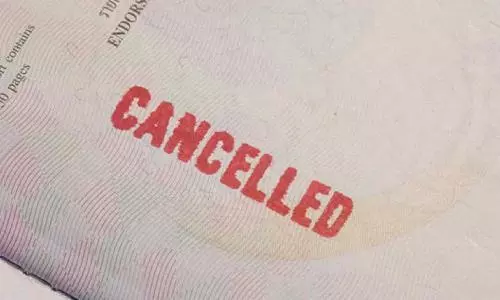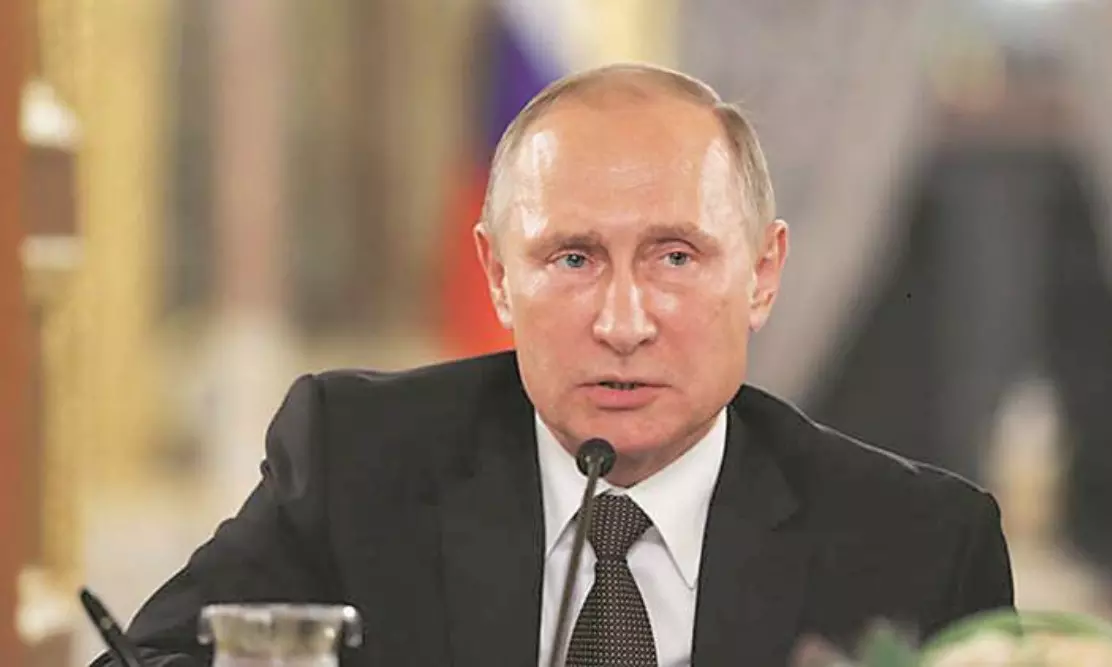
Russian Parliamentary Elections: Early results show pro-Kremlin party leads
text_fieldsRussian President Vladimir Putin/ Image from PTI
Moscow: Russia's parliamentary election results, which is widely seen as an important part of President Vladimir Putin's efforts to cement his grip on power ahead of the 2024 presidential election, showed the dominant pro-Kremlin party well in the lead, reports Associated Press.
According to reports, it is unclear if the party will retain the two-thirds majority of seats that allows it to change the constitution.
Results from about 30 per cent of the country's polling stations gave the pro-Kremlin United Russia party 45 per cent of the vote for the 225 deputies apportioned by party lists, according to the elections commission.
Another 225 lawmakers will be chosen by individual races, and the elections commission said early results showed United Russia candidates leading in 179 of those single-constituency seats.
The election Sunday lacked significant opposition presence after Russian authorities declared organizations linked to imprisoned Alexei Navalny, the Kremlin's most prominent foe, to be extremist. The voting was also marred by numerous reported violations, including ballot-stuffing.
The early results showed three other parties that almost always support Putin returning to the State Duma, as well as the New People party, which was formed last year and is regarded by many as a Kremlin-sponsored project.
The Communist Party received about 22 per cent of the party-list vote, a sizeable improvement from the 13 per cent it got in the last election in 2016. United Russia got about 54 per cent five years ago, so the early results indicate a substantial falloff in support.
Ahead of the election, Putin expressed hope that the United Russia party would retain its dominance in the parliament, where it held 334 seats out of 450. But although the party is Putin's power base, it is far less popular than the president himself.
The vote this year saw most opposition politicians and activists barred from running as Russian authorities unleashed a massive effort to suppress protests and dissent.
Reports of ballot violations from Russian media, opposition politicians and election observers in the three-day vote have been flowing since Friday morning, when unexpectedly long lines formed at polling stations in Moscow and other cities. Some of those in line told reporters they were forced to vote by their employers, often a state-run institution.
Russia's Central Election Commission chief Ella Pamfilova confirmed at least eight incidents of ballot-stuffing in six Russian regions. In all, the commission has so far invalidated 7,465 ballots in 14 regions.
In recent months, authorities have unleashed a sweeping crackdown against opposition politicians and the Smart Voting strategy devised by Navalny to consolidate the protest vote against United Russia. Smart Voting increases opposition candidates' chances of winning by telling voters which candidates in specific areas have the best chances at defeating ones backed by the Kremlin, and the authorities have made numerous attempts to wipe it off the internet.
About 50 websites run by Navalny have been blocked, including the one dedicated to Smart Voting.
Reports of mass vote rigging in Russia's 2011 parliamentary elected triggered months of anti-government and anti-Putin protests
























